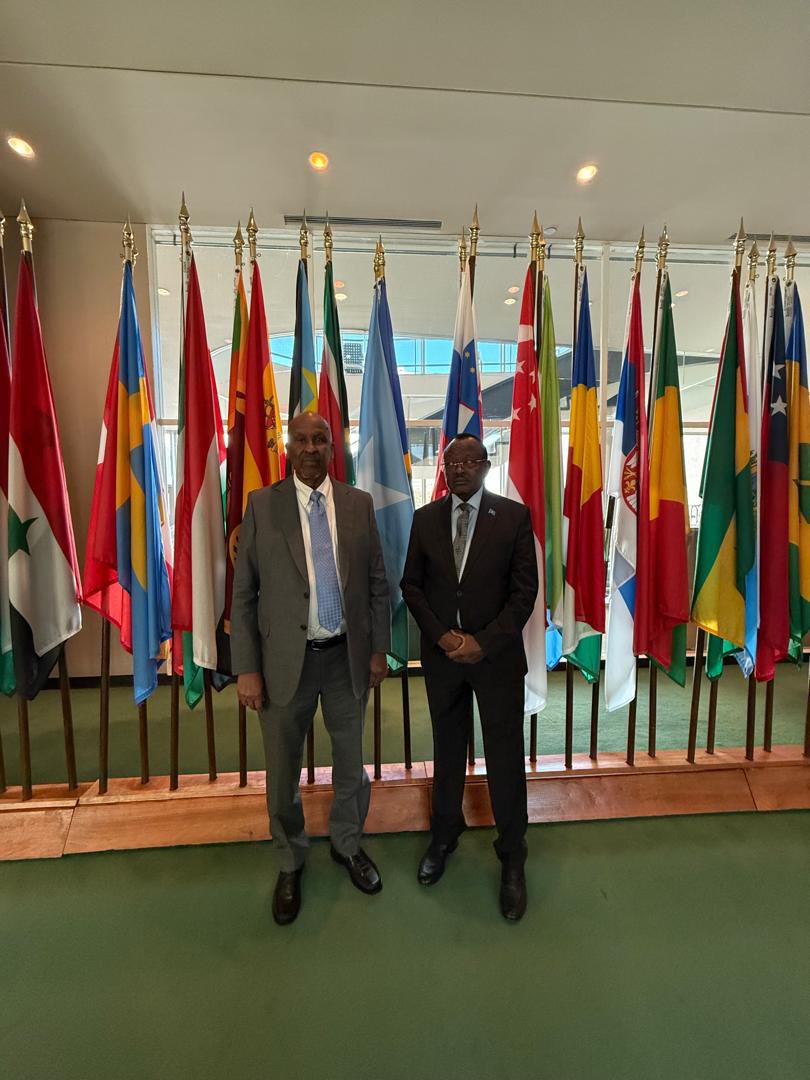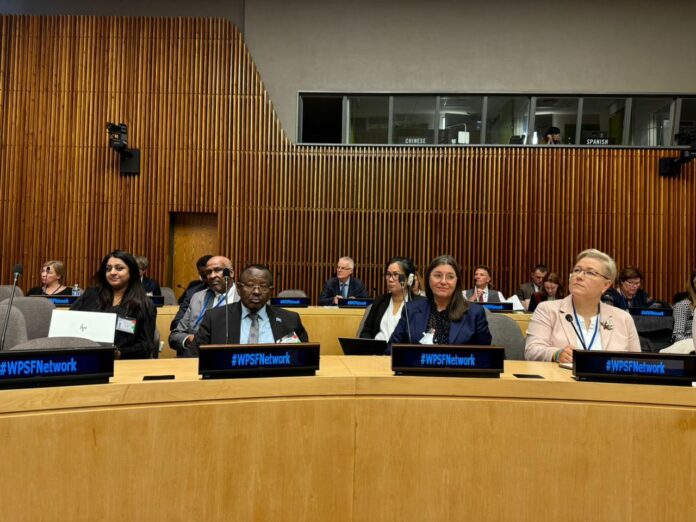MOGADISHU (KAAB TV) – The Somali military general who oversaw the rape of women detainees during his tenure as the commander of the Somali Prison Corps and later as the head of the National Intelligence Agency is now attending the 6th Women, Peace, and Security (WPS) meeting in New York.
General Bashir Mohamed Jama, now serving as the Minister of Family and Human Rights, took over the ministry after its name was changed from the “Ministry of Women Affairs and Human Rights” in late July this year.
This role is in addition to his parliamentary seat, which he inherited after his wife, Sahro Olad Abdi, resigned under intense public pressure.
“Attended the 6th Women, Peace, and Security meeting in New York. Somalia remains committed to empowering women in peacebuilding and enhancing their role in national security and leadership,” Lt. Gen. Bashir Mohamed Jama posted on his X (formerly Twitter) account.
Somalis were stunned when they saw the minister in New York, accompanied by another male politician, former minister and MP Abdullahi Godah Barre, attending the women’s conference.

The two-day meeting, held on October 21-22, was themed “Reclaiming Women, Peace, and Security: Defining a Path Forward.”
The presence of an all-male delegation at a conference focused on women’s issues sparked outrage, particularly among Somali women.
Many women took to social media to express their anger, highlighting the irony of a military general who “oversaw the rape of women detainees” attending a conference on women’s rights.
“Somalia’s decision to send an all-male delegation to the Women, Peace, and Security (WPS) Conference in New York has sparked concerns regarding the absence of female representation in discussions about women’s involvement in peacebuilding and security,” stated Muna Mohamed, a women’s rights activist.
In response to the controversy, Somali women’s groups held an online discussion on October 23, where they reiterated calls for a boycott of General Bashir Goobe’s ministry.
Similar calls were made by activists in late July, shortly after his appointment.
Some social media users mocked the general’s post. “Are you going to wear Dirac and gorgorad?” wrote Mohamed Geelle on Facebook, referring to traditional Somali women’s attire.
Others criticized the appointment, with Abdirahman Mohamed writing, “This man has made men feel ashamed. Leave the women alone. Look for another position.”
“”I believe it would be more appropriate for you to resign from this position and return to your military job. Please consider this, uncle,” Abdirashid Shaluco replied to Minister Gobe.
General Bashir Goobe, a former police officer turned intelligence chief, previously served as the commander of the Somali Custodial Corps. During his tenure, which began in early 2015, he oversaw the rape of women prisoners held at Mogadishu Central Prison.
This gross violation, widely reported at the time, was referred to the Mogadishu court but was later covered up due to the influence of then-President Hassan Sheikh Mohamud.
After some victims became pregnant, the case was referred to court, and then-Attorney General Ahmed Ali Dahir promised a full investigation and justice for the victims. However, the case was quietly dropped.
In late July, the Somali Gender Equity Movement (SGEM) wrote a letter to the Prime Minister expressing strong opposition to General Bashir Goobe’s appointment.
“Mr. Prime Minister, it is unfortunate that in a Cabinet composed of 75 members, only 9 (12%) are women, and as of yesterday, women have lost one minister and one state minister, reducing their representation to 7 (9%),” the letter stated.
SGEM, which represents nearly 8,000 Somali women advocating for women’s rights, emphasized that replacing women with men in government positions is a major setback for gender equality.
“The positions held by Somali women that have now been given to men are a significant step backward for gender equality in our country,” the letter continued.
The controversy surrounding General Bashir Goobe’s appointment continues to shine a light on the ongoing struggles for women’s rights in Somalia, as well as the larger issues of accountability and justice for victims of sexual violence.


